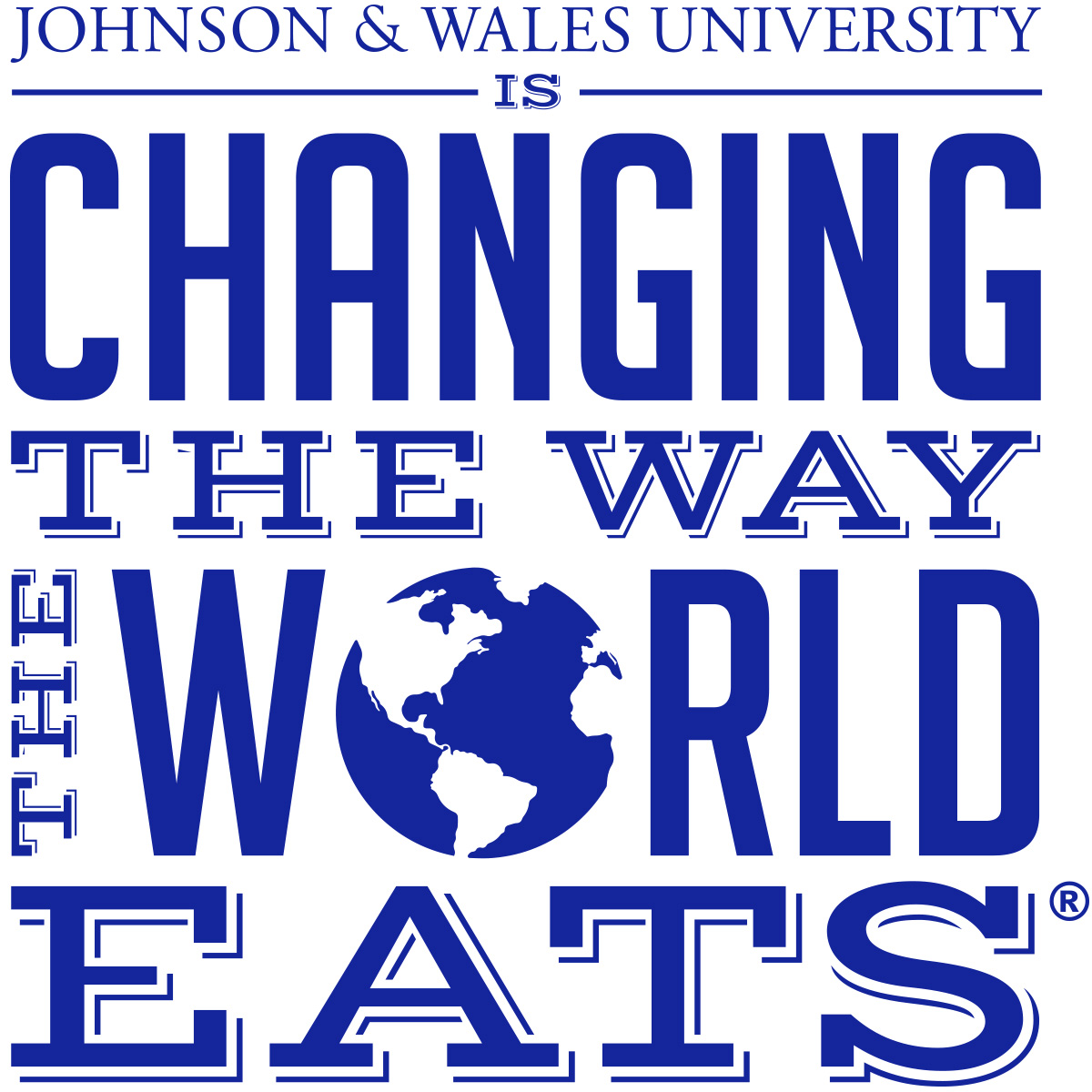Sustainability
Culinary Fundamentals will Change the Way the World Eats
By Holly Miller '19
May 2019
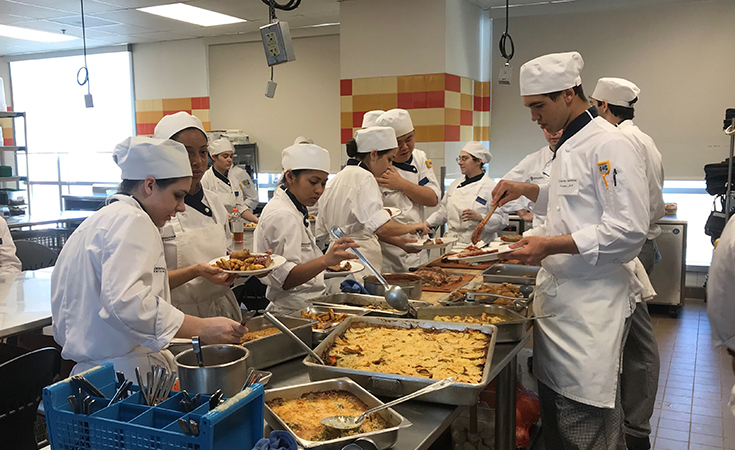
During a busy production day in one of Johnson & Wales University Cuisinart Center for Culinary Excellence’s culinary labs, 18 first-year students demonstrated more than their culinary skills. The course, Culinary Fundamentals (CUL1035), is designed for students to gain skills in the essential techniques of grilling, sautéing, baking, braising, stewing, broiling, roasting and frying while producing and tasting complementing contemporary sauces, including béarnaise, mornay and classic tomato. "In this course, students become the stewards of the kitchen," notes Branden J. Lewis '04, '06, CEC, associate professor, College of Culinary Arts. He explains how this course is preparing students to become future leaders of the food industry. Read more.
The Vegetarian Bounty of the Ocean: Seaweed
By Chef Elaine R. Cwynar, CCP
October 2018
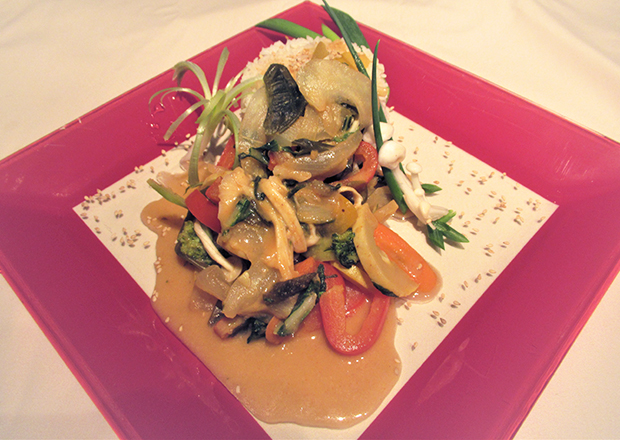
New England's fall harvest is bountiful and beautiful. We are familiar with the reds of apples and the oranges of pumpkins. But, did you know that fall also signals the beginning of a new crop of vegetables? October marks the start of the growing season of sea vegetable. Scientifically categorized as macroalgae, these ancient vegetables, commonly known as seaweed, are thought to be over a billion years old. Read more.
An Argument for the Imperfect
By Chef Matthew Britt, CEC
October 2018
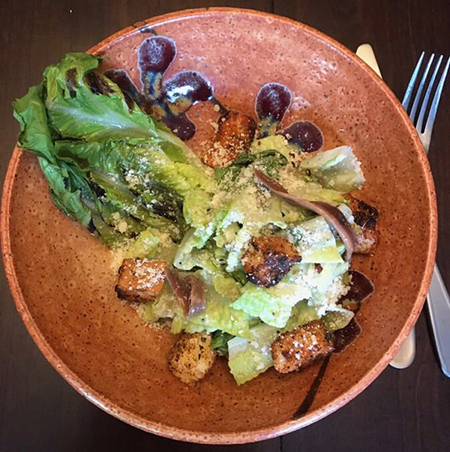
When choosing ingredients, perfection should never be the enemy of good. We’ve all done it. You're in the produce section of the grocery store and you squeeze every avocado, looking for that perfect ripeness, unaware of the damage this causes to the fruit. Or worse, you peel back ear after ear of corn, seeking a pristine cob, not thinking about how exposing the corn expedites its decline. In the dairy section, you inspect each gallon of milk for a magic date. The irony is that sell-by or expiration dates are assigned by the producer and have little to do with quality. The reality is that in our search for perfection, we are adding to the nation's growing food waste problem. Read more.
How Sustainable is Aqua-Culture: Symposium dives for answers
By JWU Media Relations
June 2018
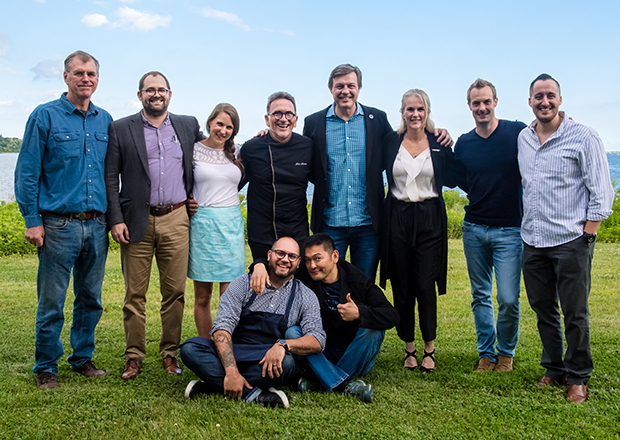
Barton Seaver , chef and author of seven books including "American Seafood: Heritage, Culture & Cookery From Sea to Shining Sea," knows that seafood matters. He says, "Seafood is part of the 'what's for dinner' conversation. It's a protein that is on par with, if not better than, land-raised animals." In June 2018, Seaver and other notable authorities of the sustainable seafood movement and award-winning chefs convened at the Providence Campus of Johnson & Wales University for "How Sustainable is Aqua-Culture." The symposium, organized by the university, the Chefs' Collaborative , and the Jacques Pépin Foundation , dove into the many facets of America's seafood scenario. Read more.
Alumni Chef Wastes Not: David Rocheleau '01, MBA '10
By JWU Media Relations
March 2018

The stats on food that is simply wasted is staggering. Forty percent of the food grown in the U.S. goes uneaten. However, Chef David Rocheleau, a graduate of JWU, is moving lowering that statistic in Rhode Island. Read more.
The Sustainable Chef in Industry
By Chef Branden Lewis '04, '06, CEC
April 2017
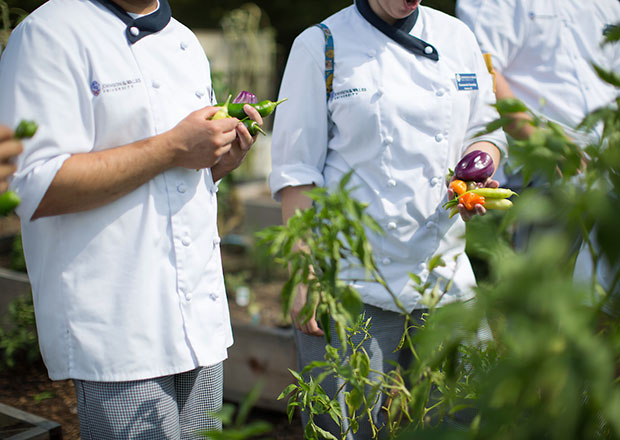
What JWU students learn in class they take out into the culinary industry. As students, they learn about sustainable food issues such as the effects humans have on ecological systems, climate change, energy usage, animal welfare, growing conditions, environment, and society. They also explore potential solutions and develop many unique ideas to address these issues. Read more.
The Making of the Sustainable Chef
By Chef Branden Lewis '04, '06, CEC
March 2017
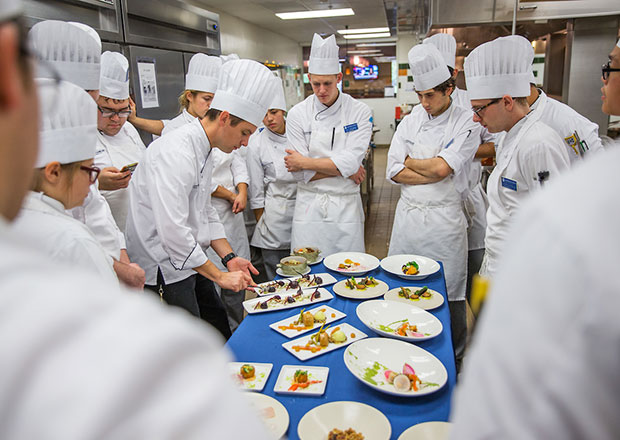
Through the curriculum of our Wellness & Sustainability concentration, JWU is cultivating a different kind of chef. A sustainable chef. And this is how we’re doing it. Read more.
Conscious Cuisine: A Trend That Will Never Leave
By Chef Thomas J. Delle Donne '04, '07, CEC
November 2015
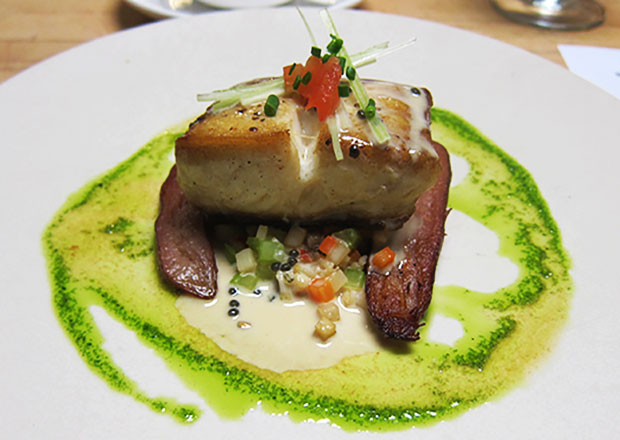
I teach a course entitled "Conscious Cuisine." It's the second in a series of two that emphasizes sustainability. In this class, students learn about the advanced techniques of seasonal, local and sustainable food preparation along with how to develop recipes and menus that will appeal to many palates. Read more.
Support Your Local Seafood Industry: Buy Local
By Chef Bill Idell
September 2015
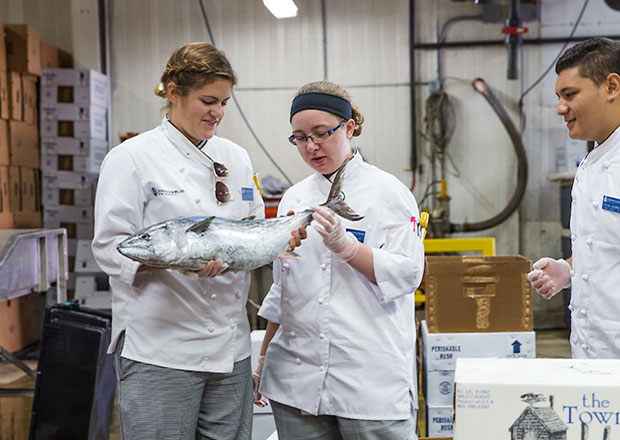
Did you know that in the United States almost 90% of the seafood we eat is imported? That may be hard for many in Rhode Island, also known as the Ocean State, to believe. With two viable fishing ports, one in Newport and one in Point Judith, Rhode Island has a 200 million dollar seafood industry. Read more.
